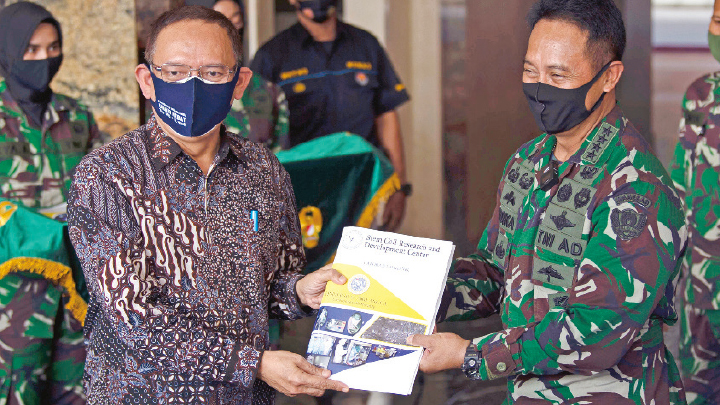The Army’s Quick Cure
Monday, August 24, 2020
arsip tempo : 174485982364.

THE Rector of Airlangga University (Unair), Mohammad Nasih, hurried to the E Building in the Indonesian Army Headquarters in Jalan Veteran, Central Jakarta, on Saturday, August 15. He was there to deliver the phase III clinical trial result of a Covid-19 drug to the Army—which is sponsoring the research, alongside the State Intelligence Agency (BIN). “Of course, since this will be a new drug, it is expected to be the first Covid-19 cu
...
Subscribe to continue reading.
We craft news with stories.
 For the benefits of subscribing to Digital Tempo, See More
For the benefits of subscribing to Digital Tempo, See More








